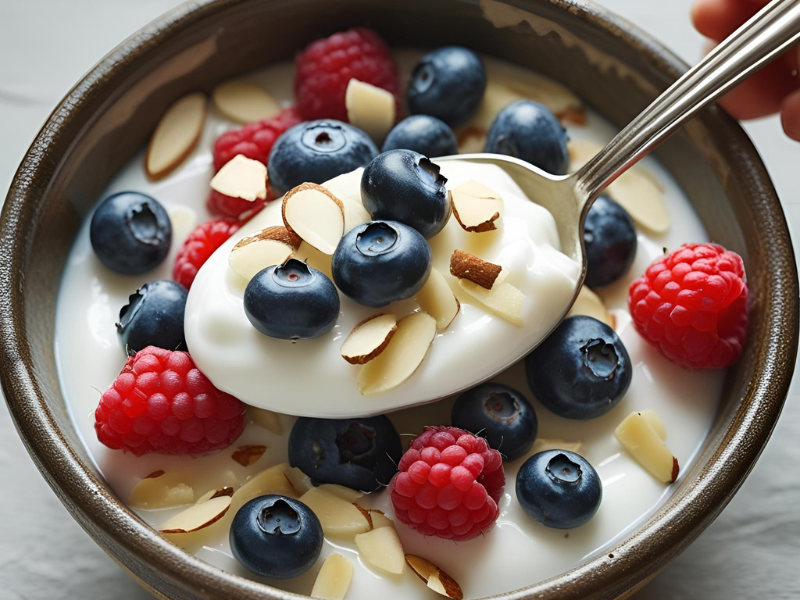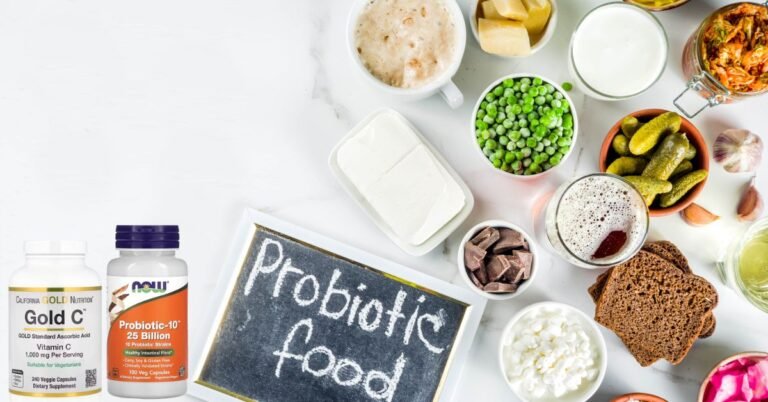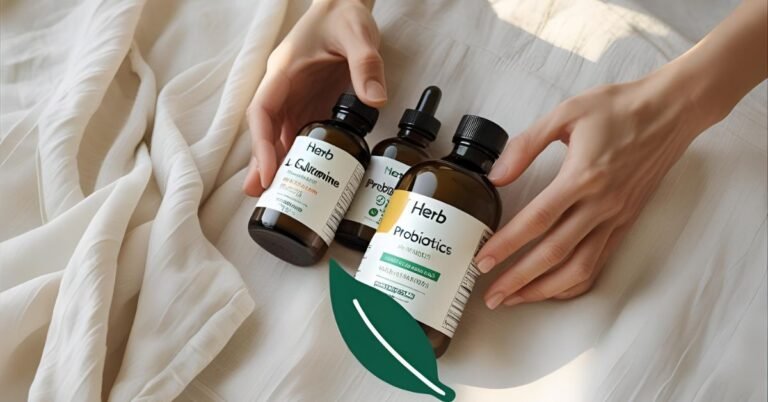How to Improve Gut Health: 7 Actionable Steps for 2025
You’ve likely heard the phrase, “go with your gut.” But what if your gut itself is out of balance? The new frontier of wellness isn’t just about what you see in the mirror—it’s about the trillions of microorganisms living within your digestive tract. This bustling ecosystem, known as your gut microbiome, is central to nearly every aspect of your health.
From dictating your mood and immune response to influencing your metabolism and even the quality of your sleep, a healthy gut is the foundation of a healthy you. The good news is that you have the power to change it.
Learning how to improve gut health doesn’t require a complete life overhaul. It involves a series of simple, actionable steps that can create profound positive changes. In this guide, we’ll walk you through 7 science-backed strategies to nourish your microbiome and unlock a new level of well-being in 2025.
Table of Contents
Why Your Gut Health is the Cornerstone of Wellness
Before we dive into the “how,” let’s cover the “why.” Your gut is connected to your brain via an information highway called the gut-brain axis. This connection means that the state of your gut directly impacts your mental clarity, mood, and stress levels. Furthermore, about 70% of your immune system resides in your gut. An imbalanced microbiome can lead to everything from digestive upset and skin irritation to chronic fatigue and food intolerances.
By taking steps to improve your gut health, you’re not just aiming for better digestion—you’re investing in a stronger immune system, a sharper brain, and more resilient mental health.
7 Actionable Steps to Improve Your Gut Health
Ready to get started? Here are seven proven strategies to bring your gut back into balance.
1. Eat a Diverse Range of Plants
Your gut microbes thrive on variety. The single best thing you can do for them is to eat a wide array of fruits, vegetables, nuts, seeds, and whole grains. Different plants contain different types of fiber and nutrients called polyphenols, which act as fuel for beneficial bacteria.
- Actionable Tip: Aim to eat 30+ different plant species per week. It sounds like a lot, but a single mixed-greens salad with seeds and veggies could contain 10 different types!
2. Incorporate Probiotic & Prebiotic Foods

Think of this as a one-two punch for your microbiome.
- Probiotics: These are live, beneficial bacteria found in fermented foods. They add soldiers to your microbial army.
- Prebiotics: These are types of fiber that your body can’t digest but that your good gut bacteria love to eat. They are the food for those soldiers.
A diet rich in both is a key part of learning how to improve gut health.
- Probiotic Sources: Yogurt with live cultures, kefir, sauerkraut, kimchi, and kombucha.
- Prebiotic Sources: Garlic, onions, asparagus, bananas, and oats.
3. Limit Processed Foods and Artificial Sweeteners
A diet high in processed foods, refined sugars, and certain artificial sweeteners can decrease the number of good bacteria and encourage the growth of less desirable microbes. Studies, like those covered by Johns Hopkins Medicine, show a clear link between a Western-style processed diet and poorer gut health.
- Actionable Tip: Focus on whole foods. When shopping, spend most of your time in the produce aisle and on the outer perimeter of the grocery store.
4. Manage Your Stress Levels
That gut-brain axis we mentioned? It’s a two-way street. Chronic stress can wreak havoc on your microbiome. The American Psychological Association notes that stress can alter gut sensitivity and the composition of your gut bacteria.
- Actionable Tip: Incorporate a daily stress-management practice. This could be a 10-minute meditation using an app like Calm or Headspace, a walk in nature, journaling, or deep breathing exercises.
5. Prioritize Restful, Deep Sleep
Sleep is your body’s master reset button, and that includes your gut. An irregular sleep schedule and poor sleep quality can disrupt your microbiome, which in turn can lead to further sleep issues—a vicious cycle.
- Actionable Tip: Create a relaxing wind-down routine to prepare your body for sleep. If you need extra support to achieve deep, restorative rest, a well-formulated supplement can help. Our Sleep Support Plus is designed with ingredients that promote relaxation and regulate your sleep-wake cycle, providing a stable foundation for both your mind and your gut.
6. Stay Adequately Hydrated
Water is essential for maintaining the mucosal lining of the intestines and helps balance the good bacteria in your gut. Dehydration is a common and often overlooked cause of digestive issues like constipation.
- Actionable Tip: Keep a reusable water bottle with you throughout the day as a visual reminder. Aim for around eight 8-ounce glasses, but listen to your body’s thirst signals.
7. Consider Targeted Supplements
While a food-first approach is always best, certain supplements can provide powerful support.
- Probiotics: If your diet lacks fermented foods, a high-quality probiotic supplement can help repopulate your gut. Look for one with multiple strains, such as Lactobacillus and Bifidobacterium.
- Collagen/L-Glutamine: These are sometimes used to help support the integrity of the gut lining.
- Fiber: If you struggle to get enough fiber from your diet, a psyllium husk or other prebiotic fiber supplement can be beneficial.
As with any supplement, it’s wise to consult a healthcare professional. For a deep dive into supplement science, the National Institutes of Health (NIH) Office of Dietary Supplements is an excellent resource.
Frequently Asked Questions (FAQ)
Q: How long does it take to improve gut health? A: You can begin to see changes in your gut microbiome in as little as a few days with dietary changes. However, for lasting improvements in symptoms and overall health, consistent effort over several weeks to months is typically needed.
Q: What is the single best food for gut health? A: There isn’t one “best” food. The key is diversity. However, fiber-rich and fermented foods like kefir, kimchi, and high-fiber vegetables are incredibly beneficial.
Q: Can I improve my gut health without supplements? A: Absolutely. The foundational steps of diet, sleep, and stress management are the most powerful tools you have. Supplements are meant to supplement a healthy lifestyle, not replace it.
Start Your Journey to a Healthier Gut Today
Learning how to improve gut health is a journey of small, consistent steps. A key part of this journey is managing chronic inflammation, which can disrupt your microbiome and overall wellness. By focusing on an anti-inflammatory lifestyle—including the right diet, stress management, and sleep—you take control of your well-being from the inside out.
For those looking to enhance their anti-inflammatory efforts, a targeted supplement can be a powerful ally. We recommend Turmeric Curcumin Plus from our trusted supplier. Its active ingredient, curcumin, is a potent, well-researched compound known for its ability to support a healthy inflammatory response, which is crucial for a happy gut.
[Learn More About Turmeric Curcumin Plus]
(As an affiliate, we may earn a commission from qualifying purchases at no extra cost to you. We only recommend products we trust.)
About the Author
This article was written and medically reviewed by the BellyBrainBed Editorial Team. Our team is composed of certified health coaches, nutritionists, and sleep science enthusiasts dedicated to providing accurate, evidence-based information to help you achieve optimal wellness. We believe in transparency and trust, and every piece of content is rigorously checked to meet our high E-E-A-T standards. [Learn more about our editorial process]







12 Comments